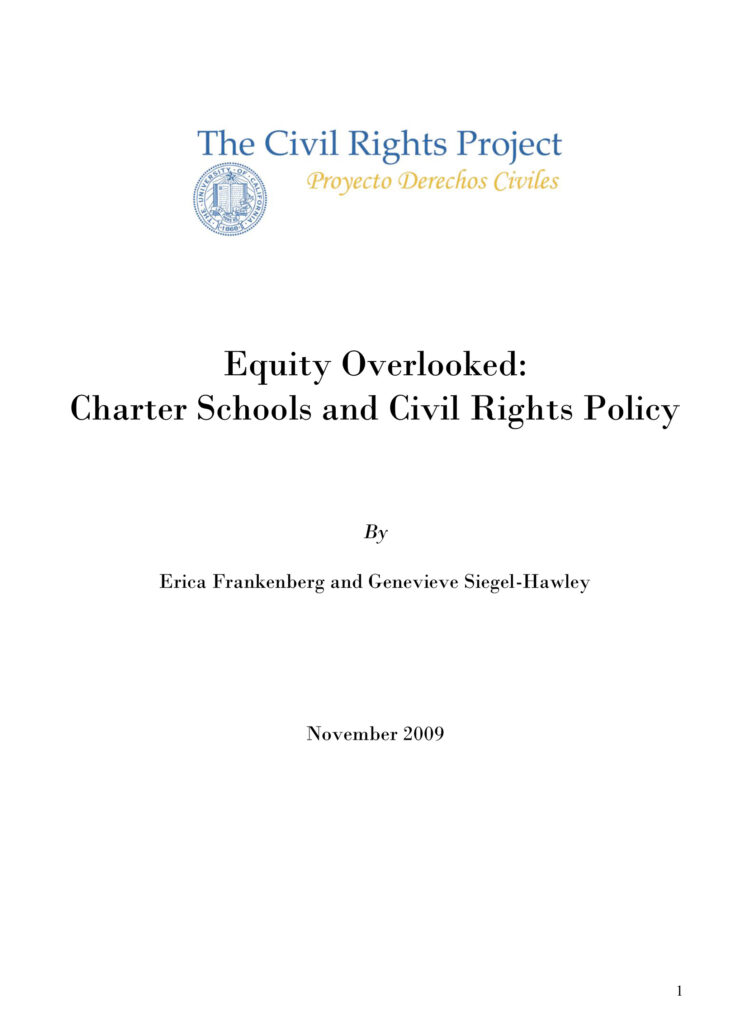Executive Summary
The expansion of charter schools is a central policy focus of the Obama Administration. Charter schools encompass a variety of schools with different priorities serving many communities and students from a range of backgrounds. There are outstanding and diverse charters, some of which have been highlighted by this or prior administrations. While the administration has acknowledged the importance of regulating and closing low performing charter schools, it has yet to respond to concerns raised about continued racial isolation in charter schools.
Why is this lack of civil rights oversight so troubling? Without necessary safeguards against the segregating effects of charter schools, disadvantaged families are left to comprehend and cope individually with the complicated landscape of school choice. Access to the educational marketplace is unequally constrained by a number of factors, including contact with advantaged social networks through which information regarding school quality is exchanged, language barriers, socioeconomic status and the ability of parents to arrange transportation for their schoolchildren. Unless proactive equity measures – like extensive outreach and free transportation – are embedded in the design of charters, and subsequently monitored and enforced, this popular version of education reform simply reinforces unequal educational opportunity.
The Civil Rights Project is in the midst of an analysis of rapidly growing charter school enrollment, which we anticipate releasing next month. Similar to trends described in our 2003 report and in other research on racial isolation in charter schools, we find higher levels of segregation for black students in charter schools compared to traditional public schools. This finding is particularly striking given that the CRP has reported increasing segregation for black (and Latino) students in public schools for nearly two decades. In other words, charter school segregation levels for black students are even outpacing steadily increasing public school segregation.
As new incentives for expanding charter schools continue to emerge, it is critically important for the federal government to issue and enforce new guidance on charter schools and civil rights policy. With many states pursuing the expansion of charter school programs – in the face of mounting evidence linking charters to increased levels of segregation – there should be no further delay. This paper describes the contours of state legislation relating to charter schools and racial diversity, as well as limited oversight activities to monitor compliance with these policies. We also highlight serious gaps in charter school enrollment data based on an on-going Civil Rights Project analysis of charter school racial, socioeconomic and linguistic segregation. We conclude with recommendations for designing charter school civil rights policy to ensure that the spread of educational choice continues to provide equal opportunities and integrated education to students from all backgrounds.
In compliance with the UC Open Access Policy, this report has been made available on eScholarship:
